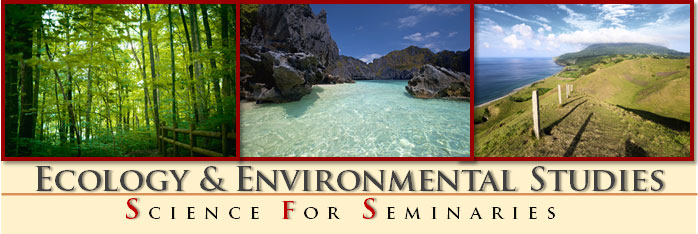
Ecology and the relationships among God, creation, and humans arise in the creation accounts in Genesis 1 and 2 among other places (Psalm 8; Psalm 104). Pope Francis’s encyclical Laudato Si’ brought the Catholic tradition of concern for creation to the attention of the world and included significant engagement with scientific findings. The resources below provide information about ecology and environmental sciences, including Catholic resources that correlate science with Catholic teaching.
- The Ecological Society of America is the largest organization of professional ecologists, and their website provides information for students and educators.
- The Ecology Global Network has an extensive website on a wide range of issues in ecology. The site includes an area specifically for kids and a link to the Ecology Campus Network consisting of material designed by faculty and students for students and the public.
- The National Park Service includes the National Resources and Science Team that responds to the natural resource needs of the Washington, D.C., area. The website organizes ecological information about the D.C. region by topic.
- The Ecology site hosted by Scitable provides an accessible and extensive body of information about ecology including resources for teaching ecology. Scitable also hosts sites on related topics including environmental ethics and earth systems.
- The United States Conference of Catholic Bishops (USCCB) hosts a webpage devoted to the Environmental Justice Program, which has links to magisterial documents, news, and resources including a two-page document summarizing Catholic teaching about concern for creation. It includes a link to Pope Francis’s encyclical Laudato Si’ which engages scientific findings in its discussion of Catholic teaching on the care of creation.
- Catholic Ecology hosts resources on Catholic teaching and paxis regarding creation, ecology, and human stewardship.
- The Environmental Protection Agency (EPA) website hosts sections on learning the issues in environmental protection and the science and technology the EPA sponsors in the fulfillment of its mission.
- Grist provides wide-ranging quality news stories about climate change, ecology, the environment, including public policy and private praxis.
- RealClimate is a blog composed by a group of scientists focused on the science of climate change without discussion of political and policy debate. The “start here” link leads to a host of links about climate science for beginners and those with more advanced knowledge.
- The Smithsonian Institution hosts an ocean portal with extensive information about oceanography, marine biology, and marine ecosystems. It has a section specifically for educators.
- The Environmental Literacy Council is a non-profit organization of scientists, economists, and educators seeking to connect teachers to quality scientific information about environmental science. In addition to areas on specific topics (e.g., energy, water), they also have a section for educators with lesson plans.
